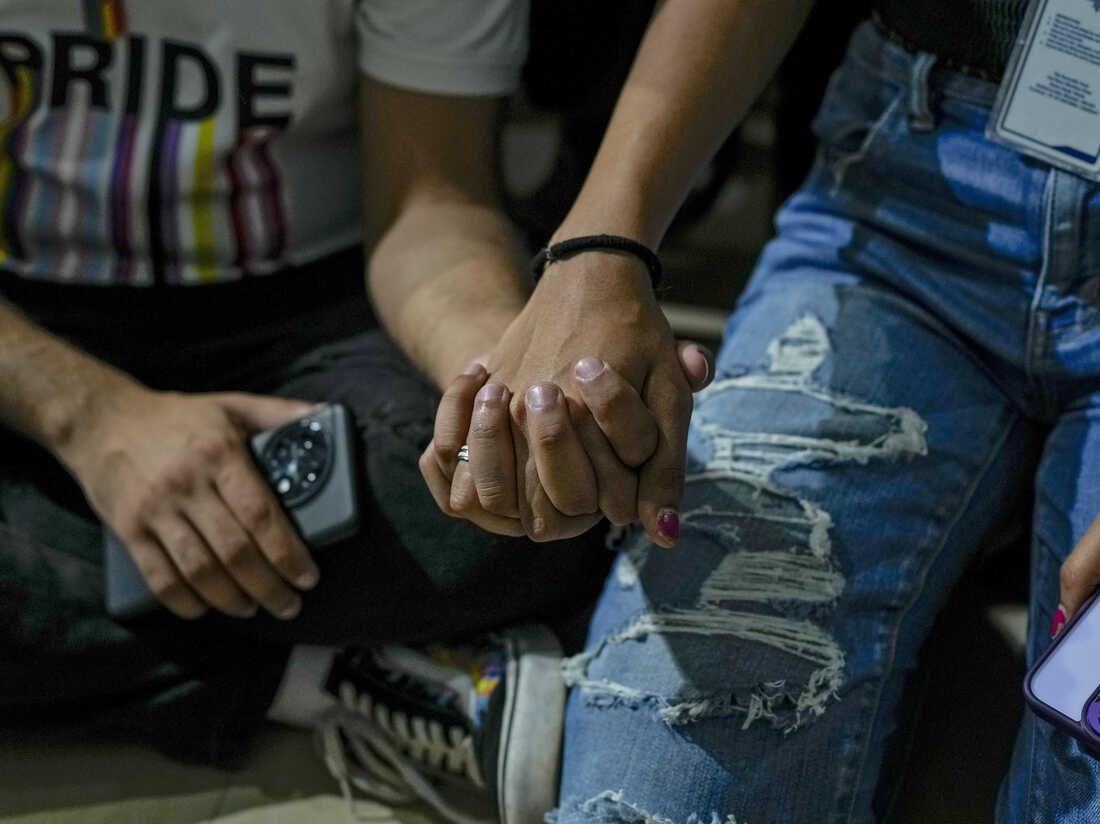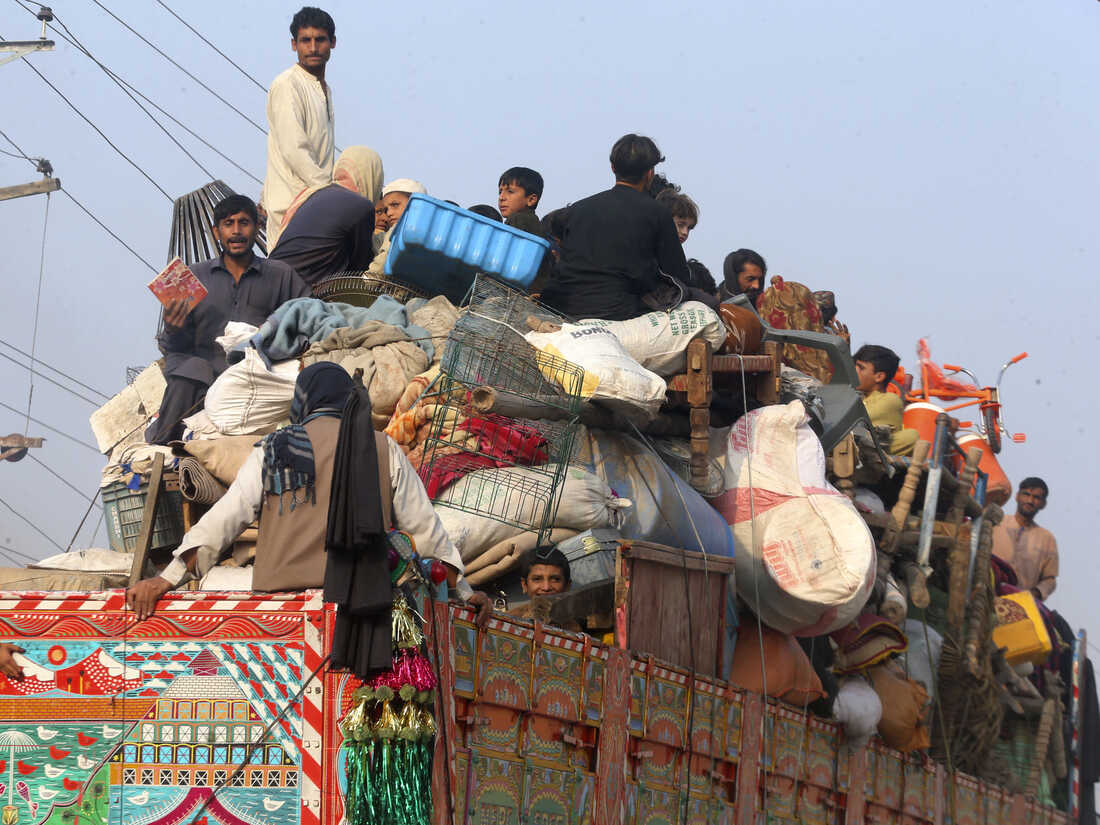India's top court refuses to legalize same-sex marriage
By The Associated Press
LGBTQ community supporters and members hold hands as they watch the Supreme Court verdict on petitions that seek the legalization of same-sex marriage, in Mumbai, India, Tuesday. According to a Pew survey, acceptance of homosexuality in India increased by 22 percentage points to 37% between 2013 and 2019. Rafiq Maqbool/AP hide caption
toggle caption Rafiq Maqbool/APLGBTQ community supporters and members hold hands as they watch the Supreme Court verdict on petitions that seek the legalization of same-sex marriage, in Mumbai, India, Tuesday. According to a Pew survey, acceptance of homosexuality in India increased by 22 percentage points to 37% between 2013 and 2019.
Rafiq Maqbool/APNEW DELHI — India's top court on Tuesday refused to legalize same-sex marriages, passing the responsibility back to Parliament in a ruling that disappointed in the world's most populous country.
Chief Justice DY Chandrachud also urged the government to uphold the rights of the queer community and end discrimination against them.
Earlier this year, the five-judge bench heard 21 petitions that sought to legalize same-sex marriage.
Chandrachud said there were degrees of agreement and disagreement among the justices "on how far we have to go" on same-sex marriages, but the judges unanimously agreed that the court can't grant LGBTQ+ people the right to marry because that is a legislative function.
that had made gay sex punishable by up to 10 years in prison and expanded constitutional rights for the gay community.The decision was seen as a historic victory for LGBTQ+ rights, with one judge saying it would "pave the way for a better future."
Despite this progress, Prime Minister Narendra Modi's government resisted the legal recognition of same-sex marriage and rejected several petitions in favor.
During the hearings, the government argued that a marriage is only between a biological male and a biological woman, adding that same-sex marriages went against religious values and that the petitions reflected only "urban elitist views." Religious groups too had opposed same-sex unions, saying they went against Indian culture.
Adish Aggarwala, the president of the Supreme Court bar association, said the court had done the right thing by recognizing that this was a job for Parliament, an argument the government also made during the hearings.
Lawyers for the petitioners argued that marriage is between two people, not just a man and woman. They said concepts of marriage have gradually changed with time and laws should acknowledge that.
By not recognizing such unions, the government was depriving same-sex couples of their right to equality enshrined in the constitution and rights enjoyed by married heterosexual couples, from adoption and medical insurance to pensions and inheritance, they argued.
"This court needs to push society to acknowledge same-sex marriage," one of the lawyers said.
Petitioners were hopeful that the Supreme Court could challenge the government's position.
Some of the justices urged the state to make sure queer couples don't face harassment or discrimination in accessing basic needs, like opening a joint bank account. They called for steps to raise awareness among the public about queer identity, establish hotlines and safe houses available for those in the queer community who are facing violence.
jurisdiction in Asia to recognize same-sex marriages. In July, enabling the registration of same-sex marriages for the first time. It's still not clear when the court would make its final decision on the case.


